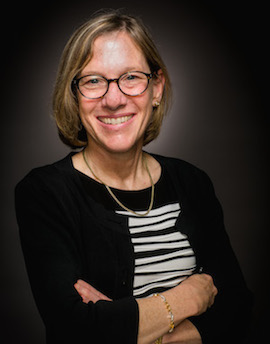 Boston University’s traditional beginning of the “Spring” semester comes after the university’s commemoration of Martin Luther King Jr. Day, which coincided this year, ironically, with the beginning of Inauguration Week. At Monday’s event, several speeches engaged the fitting theme for the day, “Hope, Despair, and the Blues.” Actor Harry Lennix shared his construal that progress is never linear and that the path forward is often unclear; our periodically regressive steps often serve to inspire renewed energy to reach for freedom, justice, and equality. He counseled that while the distance often seems great between despair and hope, the music of the blues can serve as a conduit to get us from despair to hope.
Boston University’s traditional beginning of the “Spring” semester comes after the university’s commemoration of Martin Luther King Jr. Day, which coincided this year, ironically, with the beginning of Inauguration Week. At Monday’s event, several speeches engaged the fitting theme for the day, “Hope, Despair, and the Blues.” Actor Harry Lennix shared his construal that progress is never linear and that the path forward is often unclear; our periodically regressive steps often serve to inspire renewed energy to reach for freedom, justice, and equality. He counseled that while the distance often seems great between despair and hope, the music of the blues can serve as a conduit to get us from despair to hope.
This year’s event was full of inspiring blues music and musical appreciation, featuring composer and arranger Randall Keith Horton, who conducted the BU Band and the Inner Strength Gospel Choir in music from Duke Ellington’s Sacred Concerts, accompanied by dancers. Professor Victor Coelho offered his interpretation of three performances of the Star Spangled Banner by Marvin Gaye, in 1968, 1979, and 1983, which represent, in their respective contexts, despair, the blues, and hope. The large, diverse audience in communion with each other, rising to applaud the performances of the blues, along with the messages of hope from the various speakers, gave me hope that one day we shall overcome. But it will surely take renewed energy and a full measure of the blues.
The beginning of a new year, and particularly this holiday, is a fitting time to reaffirm the importance of diversity in our intellectual community and to recommit ourselves to achieving it. I have written about this in several of my Dean’s Notes of the past year, but I cannot overemphasize the importance of this issue to our highest aspirations for the College of Arts & Sciences. For at least three reasons, fostering an inclusive and diverse community is vital as we aim for excellence in teaching and discovery. First, because diversity, opportunity, and inclusivity are important moral and social values in themselves. Second, because our mission as an educational institution requires that we teach students these values through the experience of living in a diverse and tolerant community. And third, because our mission as an institution on the forefront of discovery requires us to make our community the best possible environment for innovation and creativity, and requires that we draw from among the most talented individuals in the world, regardless of social background, race, gender, or sexual orientation.
The facts clearly demonstrate that we need to build a more diverse faculty in order to achieve our ambitions as an inclusive and excellent teaching and research institution. In CAS, only 5.6% of our tenure-stream faculty identify as members of underrepresented minorities—compared with nearly 30% of the US population; seven of our departments have no underrepresented minorities among tenure-stream faculty. Just under 30% of our tenure-stream faculty identify as female; among departments, the percentage varies greatly, from 9% to 71%.
The recently distributed report of the Task Force on Faculty Diversity and Inclusion calls on schools and colleges to develop their own strategic plans to achieve faculty diversity and inclusion. I am announcing here our next step for creating such a plan in the College of Arts & Sciences.
I am seeking committed and broadly knowledgeable members of faculty to serve on a committee to create the College’s strategic plan for faculty diversity. In the coming month, I will convene this committee, with the intention that it will complete a draft by the beginning of next academic year. This committee will broadly represent the intellectual divisions of the college (though, for reasons of efficiency, not every department can be represented). If you wish to serve on this committee, or if you would like to recommend a colleague for consideration, I invite you to contact me at casdean@bu.edu.
The charge for the committee will be to consider BU’s history, the legacy of our past, and our aspirations; to make comparisons with peers; and to set ambitious targets that recognize varying opportunities in our different academic divisions. The committee should seek to develop a unity of purpose across the College by hosting frank discussions with groups of faculty, staff, and students. Ultimately, the plan should offer actionable recommendations, which should extend to guidance on implementing the committee’s recommendations and appointing a leader of the implementation effort. In this way, I hope that CAS can serve as a model for the rest of BU as we implement the recommendations of the task force.
Achieving a diverse and inclusive intellectual community that fosters deep, liberal education and soaring discovery and creativity is a bold aspiration, and a hopeful, even daring one at this political moment. May the despair of this week give rise to a blues that inspires our progress.